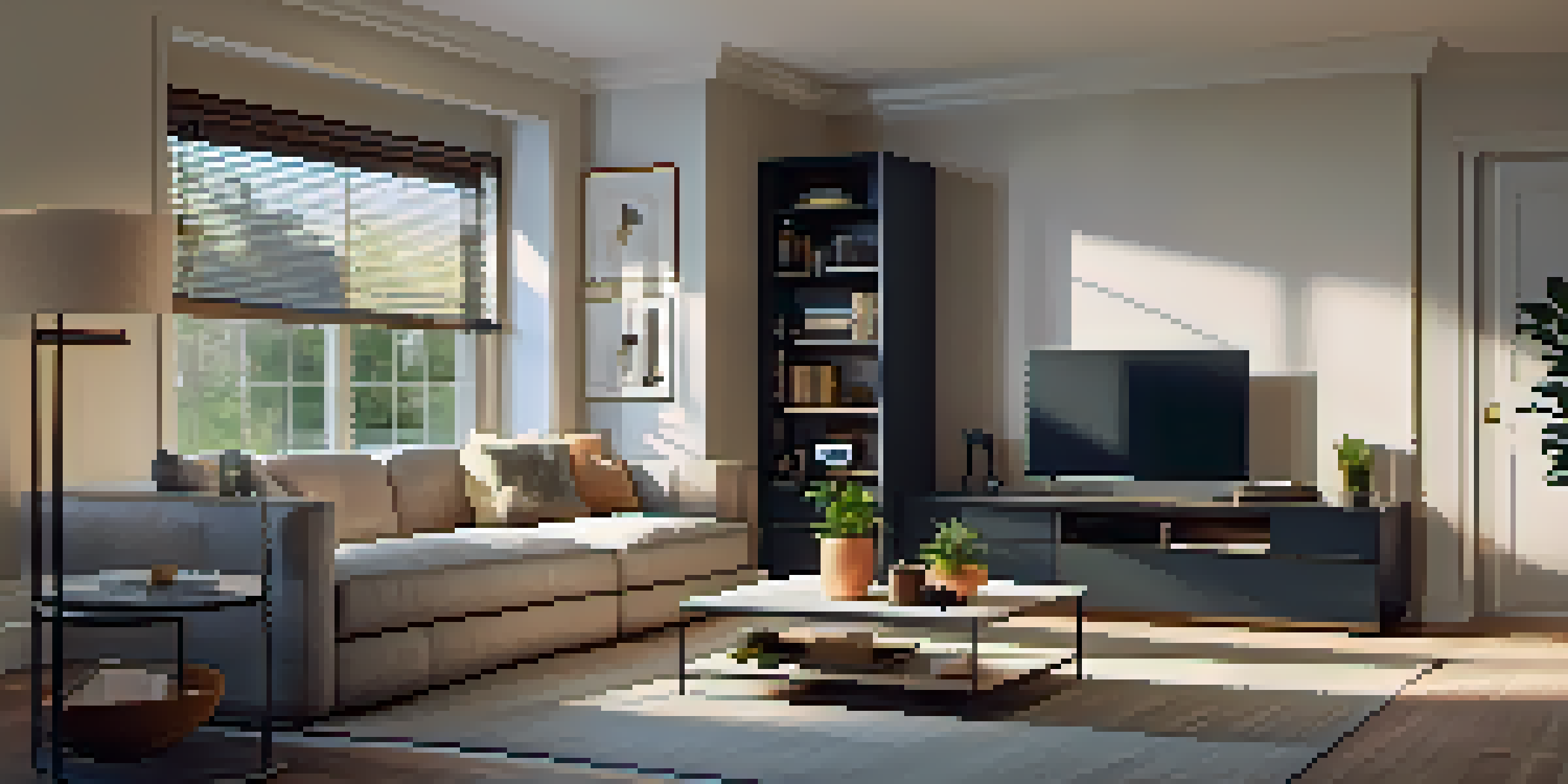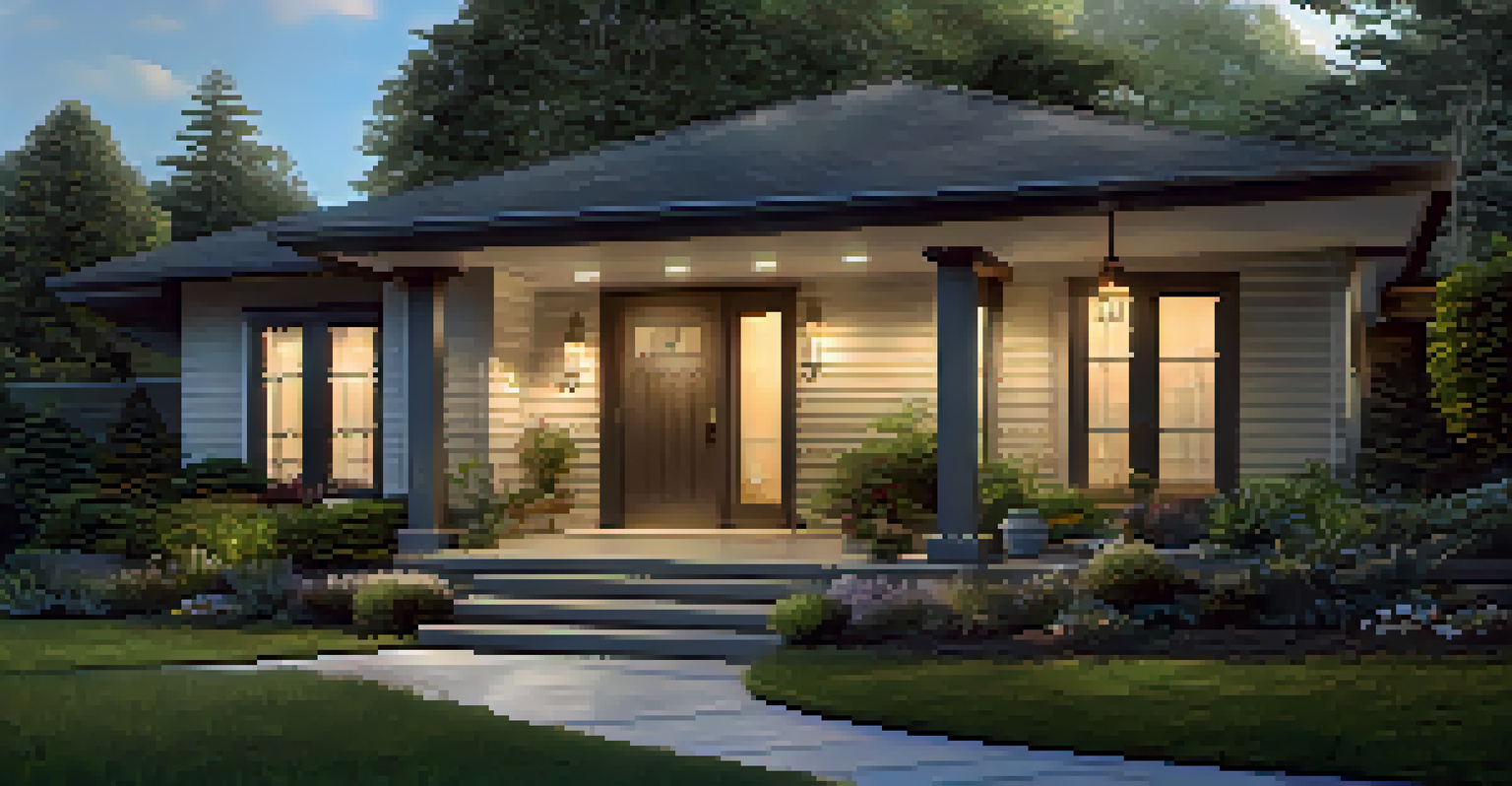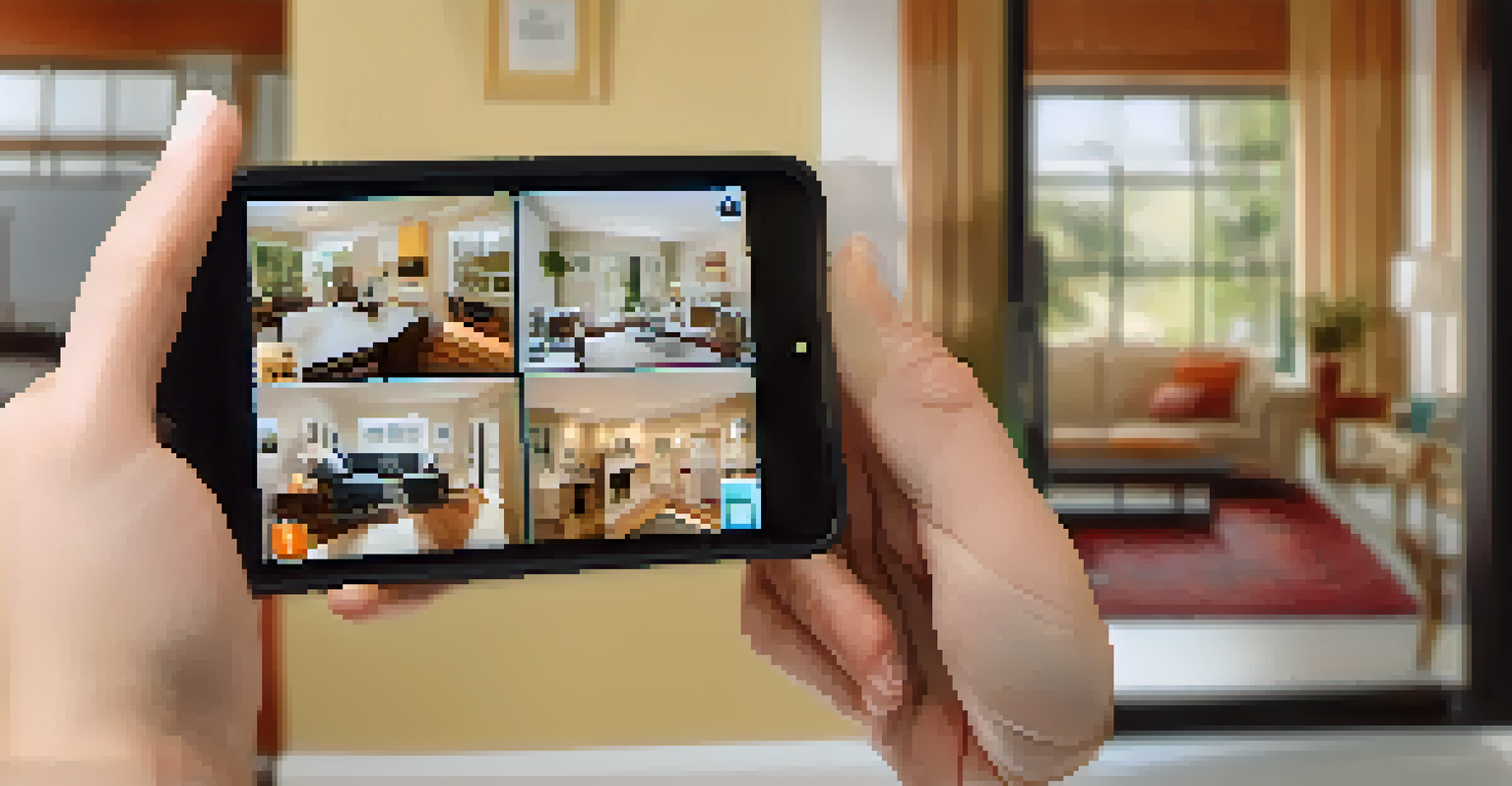Understanding the Basics of Home Security Systems

What is a Home Security System and Why Do You Need One?
A home security system is a collection of devices designed to protect your home from various threats, including burglaries and fires. It typically includes alarms, cameras, and sensors that work together to monitor your property. Understanding the importance of these systems is crucial, especially in today's world where home invasions can happen unexpectedly.
The only thing worse than being blind is having sight but no vision.
Imagine your home as a castle, and your security system as the moat and drawbridge that keep unwanted guests at bay. With the right system in place, you can feel more secure knowing that your family and belongings are protected. A reliable home security system not only deters potential intruders but also provides peace of mind for you and your loved ones.
Moreover, many insurance companies offer discounts for homes equipped with security systems, making it a smart financial decision as well. In short, investing in a home security system is about safeguarding your sanctuary and enhancing your overall sense of well-being.
Types of Home Security Systems Available
Home security systems come in various types, catering to different needs and preferences. The most common are wired and wireless systems; wired systems require physical connections, while wireless systems use Wi-Fi or cellular networks for communication. Each has its advantages, such as reliability in wired systems and flexibility in wireless options.

Additionally, there are monitored and unmonitored systems. Monitored systems have a professional service that keeps an eye on your home 24/7, alerting authorities in case of emergencies. On the other hand, unmonitored systems rely on you to respond to alarms, which can be a good choice for those who prefer more control over their security.
Importance of Home Security Systems
A home security system protects your home from threats like burglaries and fires, providing peace of mind and potential insurance discounts.
Lastly, smart security systems integrate with your smart devices, allowing you to control everything from your smartphone or tablet. This innovation makes it easier than ever to stay connected and secure, giving you the ability to monitor your home from anywhere, anytime.
Key Components of a Home Security System
A comprehensive home security system typically consists of several key components, each playing a vital role in your overall protection strategy. Security cameras are essential for monitoring both the interior and exterior of your home, providing you with visual evidence in case of an incident. They can be wired or wireless and often come with features like night vision and motion detection.
An ounce of prevention is worth a pound of cure.
Another critical component is the alarm system, which triggers loud sounds to deter intruders and alert you to potential threats. Many systems include door and window sensors that notify you when a door or window is opened unexpectedly. These sensors act as the first line of defense, helping to secure your entry points.
Lastly, a control panel serves as the brain of your security system, allowing you to arm or disarm alarms and view camera feeds. When combined, these components create a robust security framework that helps keep your home safe.
How to Choose the Right Home Security System
Selecting the right home security system can feel overwhelming given the multitude of options available. Start by assessing your specific needs and priorities. Consider factors such as the size of your home, the level of security you desire, and your budget. Identifying what matters most to you will help narrow down your choices.
Next, research various systems and companies. Read reviews, ask for recommendations from friends or family, and compare features and pricing. It's essential to choose a reputable provider that offers reliable customer support and a solid warranty for their products.
Types of Security Systems Available
Home security systems vary in type, including wired vs. wireless and monitored vs. unmonitored, allowing you to choose what best fits your needs.
Lastly, think about the installation process. Some systems are DIY-friendly, while others require professional installation. Decide which approach suits your skills and comfort level, ensuring that your new security system is set up correctly for optimal performance.
Understanding Monitoring Services: Professional vs. DIY
Monitoring services are a crucial aspect of home security systems, and they come in two main flavors: professional and DIY. Professional monitoring involves a dedicated team who monitors your system around the clock, ready to alert authorities if an alarm goes off. This option provides peace of mind, especially if you're away from home frequently or have a busy lifestyle.
On the other hand, DIY monitoring systems allow you to take control of your home security. You can receive alerts directly to your smartphone, and respond as you see fit. While this option can be more cost-effective, it requires you to be vigilant and responsive to any alarms or notifications.
Ultimately, the choice between professional and DIY monitoring depends on your lifestyle, budget, and comfort level with technology. Both options have their pros and cons, so weigh them carefully to find the best fit for your home.
The Role of Smart Technology in Home Security
Smart technology has revolutionized home security, making it more accessible and user-friendly than ever. With the rise of smart home devices, you can integrate your security system with other gadgets, such as doorbell cameras, smart locks, and motion detectors. This interconnectedness allows for seamless monitoring and control from your smartphone or voice-activated devices.
Imagine being able to view your front porch camera while at work or unlocking your door for a guest remotely. Smart security systems enable you to manage your home security in real-time, providing both convenience and peace of mind. They also often come with features like alerts and automated routines, allowing for a tailored security experience.
Smart Technology Enhances Security
Integrating smart technology with your security system allows for remote monitoring and control, improving both convenience and safety.
As technology continues to evolve, so does the effectiveness of home security systems. Embracing smart technology not only enhances your security but also makes your home more efficient and responsive to your needs.
Maintaining Your Home Security System: Best Practices
Once you've invested in a home security system, it's essential to maintain it for optimal performance. Regularly check and update your passwords, ensuring that only trusted individuals have access to your system. This simple step can prevent unauthorized access and keep your home secure from potential cyber threats.
Next, test your alarms and sensors periodically to ensure they're functioning correctly. Just like you wouldn't drive a car without checking the brakes, you shouldn't rely on a security system without confirming its readiness. Many systems have built-in self-check features, but it's wise to perform manual checks as well.

Lastly, stay informed about new security technologies and features. The world of home security is constantly evolving, and keeping up with advancements can help you enhance your system over time. By following these best practices, you can ensure that your home remains a safe haven for you and your family.